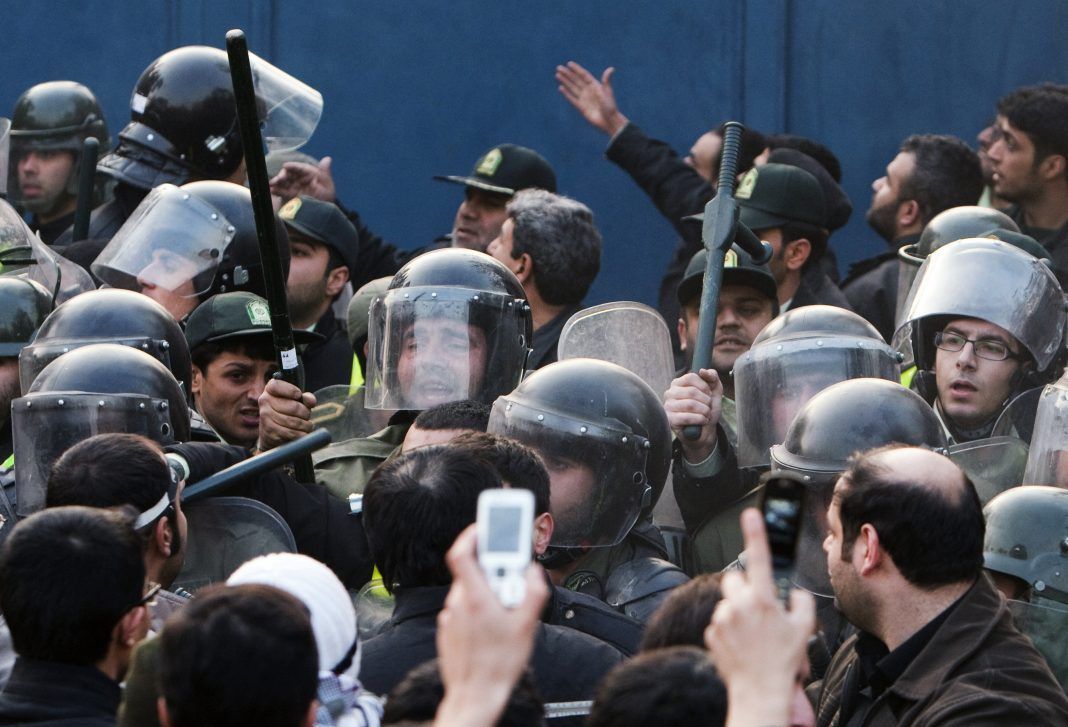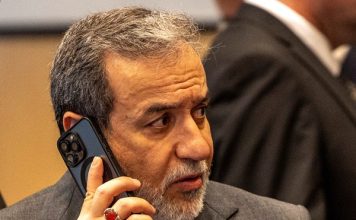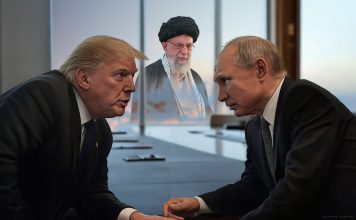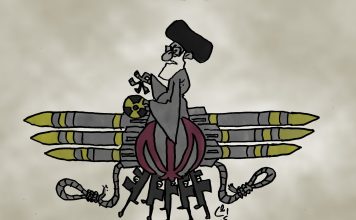Iran’s policy of prioritizing its national security goals has led it to commit human rights violations, according to a new report published by Minority Rights Group International, a U.K.-based nongovernmental organization that fights for disadvantaged minorities around the world.
The report, entitled “In the Name of Security: Human rights violations under Iran’s national security laws“, was published this week and written by Drewery Dyke, a Fellow at the Foreign Policy Centre think tank in London. The document accuses the Iranian Revolutionary Guards Corps (IRGC) of creating patterns of human rights violations by intervening in Iran’s governmental decisions.
The violations listed include mass executions, arbitrary detentions of individuals, the targeting of BBC journalists and their families, excessive use of force, and human trafficking.
The report makes several recommendations to stem human rights violations. They include the ratification of human rights treaties, an end to the illegal detention of dual nationals, and a narrowing of the death penalty so that the sentence is only handed out for the most serious offenses.
Speaking to Kayhan Life, Drewery Dyke said the timing of the publication was significant.
“This report comes in the context of an emerging international discussion regarding states’ repeated failures to implement human rights bodies’ recommendations relating to governance,” he said. “In the case of Iran, socioeconomic and political forms of conflict are in the balance, and if they go the wrong way, they run the risk of developing into a human rights emergency.”
Iran has been badly hit by the COVID-19 pandemic and punishing U.S. sanctions, which have placed the country’s economy and population under enormous strain. Iran’s President Hassan Rouhani said in a televised speech that 2020 had been the country’s toughest year, after Iran’s currency, the rial, fell to its lowest ever against the U.S. dollar on Monday. Official estimates indicate that at least 10,500 people have died from the coronavirus, though the exact figure is likely to be much higher.
U.S. Sanctions, Coronavirus Make for Iran’s Toughest Year -Rouhani
In April, Iran’s armed forces spokesman Brigadier General Abolfazl Shekarchi, said 3,600 people had been arrested for spreading coronavirus-related rumors.
“Thousands of people in Iran were arrested just for talking about COVID-19, because Iran has good relations with the Chinese authorities. A lot of people know that chit-chat about a virus coming from China actually doesn’t represent a threat to anyone,” Dyke noted.
“It’s just talk, and if the government were to allow it to proceed and to run its course they would find that a lot of these things don’t amount to anything. Trying to get people to see that is actually quite a big challenge,” he said.
Protests inside the country over economic mismanagement, corruption and standards of living saw security forces crack down on demonstrators in 2019, killing at least 200 people, including children. Human rights organizations inside and outside Iran accused the government of using excessive force to disperse demonstrators during the November protests.
Manouchehr Bakhtiyari, the father of 27-year-old Pouya Bakhtiyari who was shot in the head and killed by Iranian security forces last year while protesting peacefully, called on senior UN officials to launch an independent international investigation into the violence during the demonstrations.
The appeal was made in a letter published on the Center for Human Rights in Iran’s website on Monday. The UN has previously asked the Iranian government to investigate the conduct of its security forces during the protests but no investigation has taken place.
Dyke said he hoped the report would show Iranian officials that viewing the world through a national security lens that sees everything as a threat has been a bar to effective governance.
“I hope that message will be better understood now in a context which is really fraught socioeconomically, along with a very weak government,” he noted.
“I think there are a number of people, even in this new parliament, that do have an inkling, a notion, maybe even a strong one, that they are in a political and socio-economic bind and that their people are in a bind, and they need to find a resolution for that,” he added.
The report goes on to recommend that the Iranian government ratifies human rights treaties endorsed by the international community, which would give citizens inside Iran added protections. Previous attempts at ratifying similar treaties have been complicated by the Islamic Republic’s domestic laws, which allow the government to override international legislation.
The Convention on the Rights of the Child (CRC) which was ratified by Iran in 1994, included a Reservation, or legal exemption, inserted by officials enabling the government to set aside clauses within the CRC which contradicted Iran’s national and domestic laws. One outcome of the Reservation was that it enabled paedophilia within the family home because of a domestic law in Iran which allows a father to marry his stepdaughter.
A further proposal made by the report seeks to narrow, rather than ban, Iran’s death penalty. Explaining the decision behind the recommendation, Dyke said, “It’s a balancing act. The principled position is to say, ban the death penalty outright. In the Iranian context that’s not going to happen. There is no legislator, no member of the judiciary and not even in terms of the public is there any buy-in for that. Where there has been success, is the narrowing of the grounds for the death penalty.”
Commenting on the report’s aims, Dyke explained, “The biggest conundrum that this report addresses is the dynamic between the Revolutionary Guards and its relations with the state and its accountability. The underlying message in this report is that this national security lens, or focus, just doesn’t work.”








